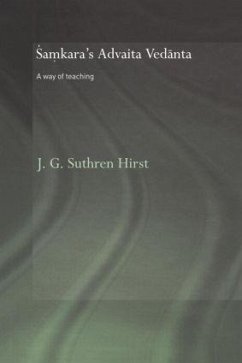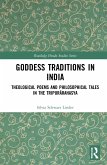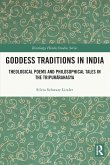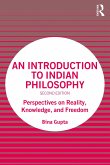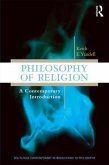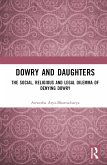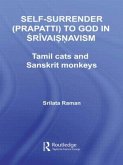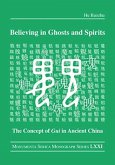Samkara (c.700 CE) has been regarded by many as the most authoritative Hindu thinker of all time. A great Indian Vedantin brahmin, Samkara was primarily a commentator on the sacred texts of the Vedas and a teacher in the Advaitin teaching line. This book serves as an introduction to Samkara's thought which takes this as a central theme. The author develops an innovative approach based on Samkara's ways of interpreting sacred texts and creatively examines the profound interrelationship between sacred text, content and method in Samkara's thought. The main focus of the book is on Samkara's teaching method. This method is, for Samkara, based on the Upanishads' own; it is to be employed by Advaitin teachers to draw pupils skilfully towards that realisation which is beyond all words. Consequently, this book will be of interest not only to students and scholars of Indian philosophy, but to all those interested in the relation between language and that which is held to transcend it.
Bitte wählen Sie Ihr Anliegen aus.
Rechnungen
Retourenschein anfordern
Bestellstatus
Storno

